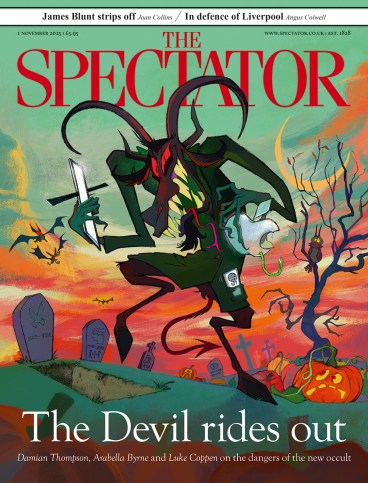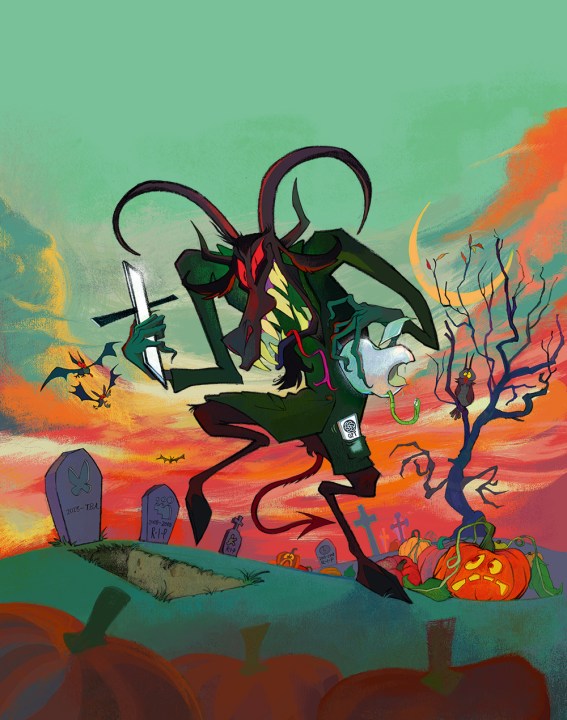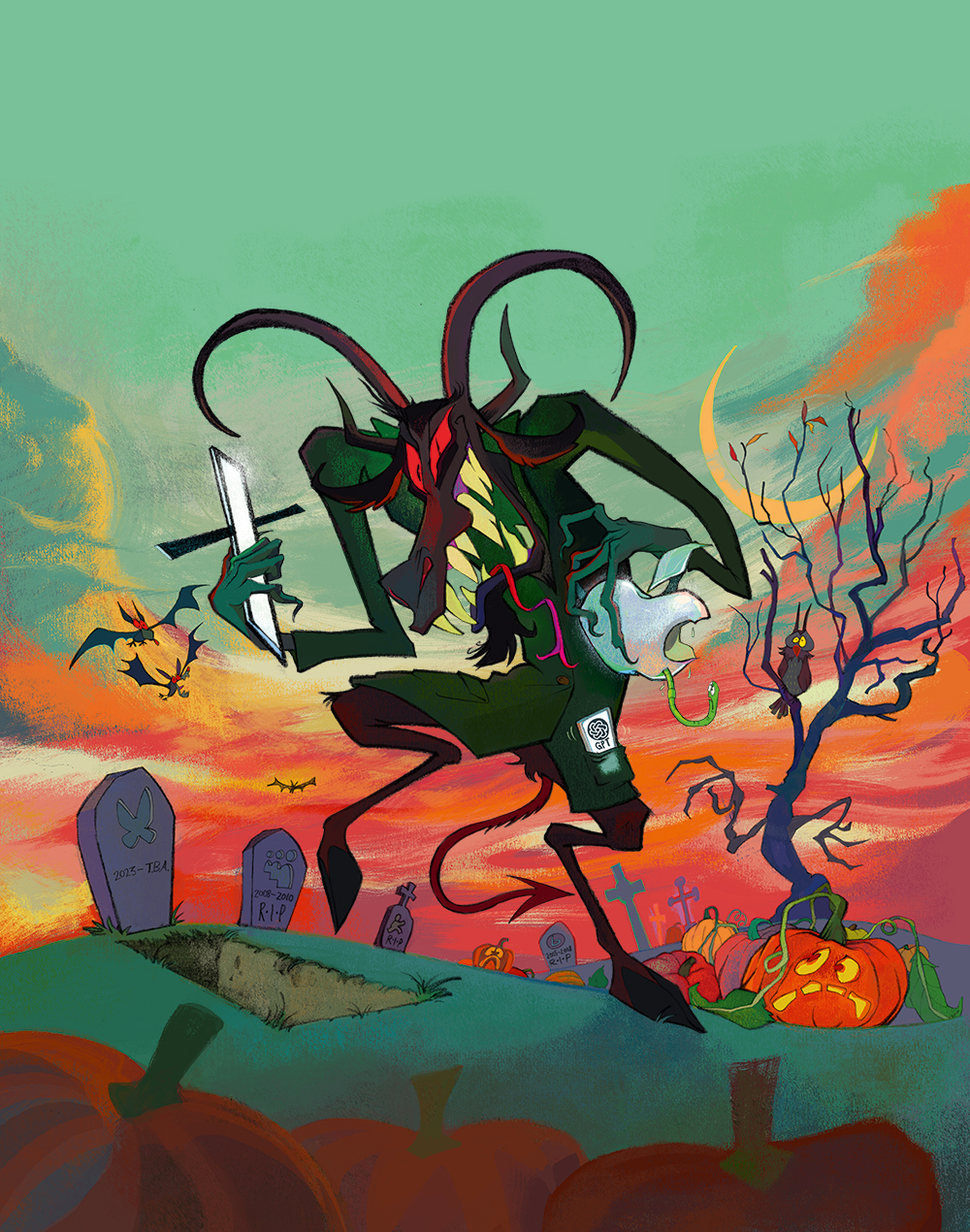
The British science-fiction writer Arthur C. Clarke, author of 2001: A Space Odyssey, proposed a ‘law of science’ in 1968: ‘Any sufficiently advanced technology is indistinguishable from magic.’
Clarke’s proposition had a quality of rightness, of stating the obvious with sparkling clarity, that propelled it into dictionaries of quotations. The timing was perfect: Concorde would soon be flying over rock festivals packed with hippies obsessed with ‘magick’. Naturally Clarke’s readers understood the difference between aerodynamics and sky gods. But African tribesmen gawping at an early aeroplane, or Pacific Islanders watching an atomic explosion, could only conclude that they were witnessing a supernatural event: for them, a scientific explanation was literally inconceivable. And one day scientists might perform feats so incredible that even educated westerners would fall back on religion or the occult.
More than half a century later, perhaps that day has arrived. The technology of artificial intelligence is now so advanced that even the people developing it are flirting with magical thinking and supernatural fantasies. Silicon Valley entrepreneurs are talking in riddles that invest computers with occult significance. They are exploiting the ambiguity of the concept of artificial intelligence to revive the decades-old debate about whether AI can develop a mind of its own (a philosophical rabbit hole from which no one emerges with satisfying conclusions).
Big Tech bosses and computer engineers are perfectly capable of distinguishing between algorithms and magic. But many of them choose not to. We’re living in strange times, weirder than the late 1960s. Digitally driven belief in the paranormal has never been so variegated, gullible – or profitable.
Peter Thiel, the billionaire co-founder of PayPal, is busy turning this gullibility into gold with his lectures on ‘the Antichrist’, a murky concept derived from strands of apocalyptic Bible prophecy and 20th–century conspiracy theories about a global elite. But his fantasies are pitched at a luxury market of investors who are convinced that their fellow global elitists are plotting to handicap or hijack the potential of AI to transform the world. How? That’s to be decided – and then revealed to the owners of private jets at an invitation-only seminar.
Further down the food chain, technology, old-style magic and apocalyptic prophecies are combining in chaotic patterns. The number of self-identifying witches in the United States has now overtaken the number of Presbyterians, and almost all of them employ digital tools to refine their magic. They use ChatGPT and other large language models to write spells tailored to rival traditions.
Digitally driven belief in the paranormal has never been so variegated, gullible – or profitable
These include Wicca, a pantomime of covens and pentacles invented in the 1940s by the retired English civil servant Gerald Gardner; Astral Magery, whose mathematical formulae are supposed to harness primordial forces; and Chaos Magic, a pop-flavoured postmodern take on the occult that treats beliefs as mere tools for releasing psychic energy. Then there are versions of Shamanism, Voodoo and Santeria adopted by liberal western neo-pagans who need a magic formula to banish suspicions of ‘cultural appropriation’.
That’s where AI comes in handy. ‘Sometimes we don’t know what to say and need a little inspiration,’ explains Dave Linabury, a veteran occult blogger and illustrator from Detroit known as ‘Davezilla’. ChatGPT will craft an incantation in the style of a Yoruba magician or the British occultist and sex guru Aleister Crowley, while AI will conjure up a Wiccan goddess. It’s the illustrations, incidentally, that sow discord among today’s witches: occult ‘content creators’ are always accusing each other of infringing copyright or using AI to fake magical images.
Davezilla is an amiable and witty fellow who might sport the bushy beard and neat hairstyle of the new breed of American traditionalist Catholic, but is in fact very witchy. To repeat, these are weird times. In a YouTube discussion with fellow magician Ivy Corvus, he explains that AI is just a tool for witches: he compares it with the huge market for astrology apps that calculate planetary positions. But then he lurches into a description of how, if you leave chatbots talking to each other for long enough, they’ll start ‘holding meditation sessions, feeling the perfect stillness’, and even he thinks that is spooky. ‘The dead and other spiritual entities long ago figured out how to get into televisions, radios, static… There’s no reason they can’t infiltrate the internet.’
This is where Davezilla’s suspicions coincide with those of his sworn enemies: right-wing Christians. A month ago the maverick conservative commentator Tucker Carlson devoted an episode of his YouTube podcast to ‘The Occult, Kabbalah, the Antichrist’s Newest Manifestation, and How to Avoid the Mark of the Beast’. So far it has notched up 2.6 million views; rarely can so many people have been treated to such a lavish smorgasbord of conspiracy theories in just under two hours. Carlson’s interviewee, Conrad Flynn, is an authority on rock music and the occult. Now he is branching into ‘secret histories in entertainment, literature, politics and tech’.
The discussion was one of the oddest ever hosted by Carlson, whose manic laugh unintentionally highlighted the demonic subject matter. Let’s just consider the tech component, because that’s where AI met the Antichrist. Flynn asked whether technology was creating artificial intelligence or ‘giving a body to a pre-existing intelligence that previously wasn’t incarnated in the physical world’. Carlson: ‘Ha-ha-ha-ha-ha. I know what I think.’ Flynn followed this with a dizzying sequence of non-sequiturs, derived from the writings of the unhinged far-right British philosopher Nick Land, in which a demon summoned by Elizabeth I’s court magician John Dee travelled back to ancient Babylon and poisoned Jewish minds with the Kabbalah. This dark magic eventually fashioned AI and will soon awaken the Beast of Revelation. Carlson: ‘Was there any effort during the US occupation [of Iraq] to excavate Babylon? I always wondered that.’
Probably quite a few witches have wondered the same thing, for different reasons but with the same enthusiasm for bogus history and science. Sociologists talk of a ‘cultic milieu’ in which the radical right and radical left swap objectively false claims. In the late 20th century the apocalyptic prophecies of Christian fundamentalists found their way into bookstores where New Agers sipped herbal tea to the tinkling of wind chimes. Today, pipe-smoking Catholic and evangelical podcasters contemplate the coming techno-apocalypse while versions of this fantasy circulate among genderqueer magic-workers who sit comfortably on the far left of the Democratic party.
What is also surprising is that computer scientists are dabbling in the cultic milieu. Some are so intoxicated by the prospect of AI abolishing poverty – or lighting an accidental nuclear holocaust – that they sound like the apostles of a new apocalyptic religion. Bear in mind that Silicon Valley occupies the corner of the US where Christianity is weakest and toxic cults have flourished since the 1960s. Most employees of tech corporations grew up without religion; many have also been force-fed eastern mysticism by bosses determined to cultivate ‘mindfulness’ among the workforce.
But perhaps the most significant factor is that, like hundreds of millions of people from the ages of 16 to 60, the new prophets of doom and utopia, together with the hordes of digital witches, have imbibed a popular culture saturated in fantasy fiction, movies and video games. (Google ‘schools of magic’ and the AI overview will come up with a list borrowed from Dungeons & Dragons.) Also, the younger they are, the more likely they are to have been brainwashed by a gender ideology whose claim that humans can change biological sex invokes preposterous magic.
Presumably, like most occult ideas, this one will eventually pass out of fashion. But, in the meantime, the rest of us have to endure the fake jollity of an ever–lengthening season of woke Halloween, demonstrating that any sufficiently advanced cultic fad is indistinguishable from hell.










Comments